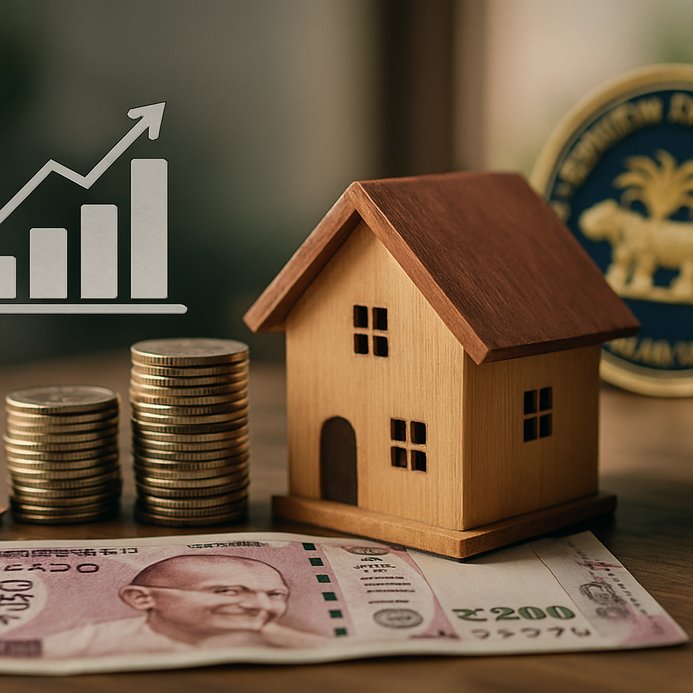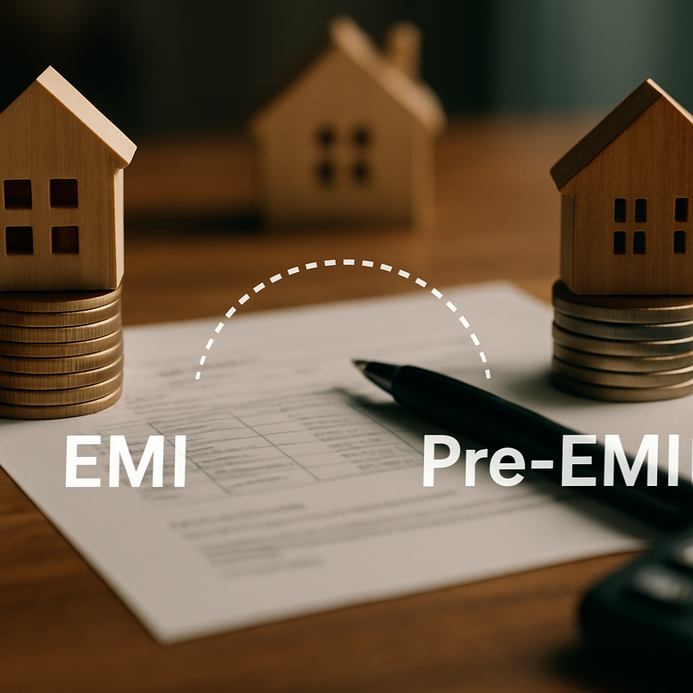Understanding TDS on Purchase of Property in India
This guide will untangle the complexities of Tax Deducted at Source – TDS on purchase of property in India and ensure you navigate the process smoothly amidst the whirlwind of house hunting and paperwork.
Introduction to TDS on Purchase of Property

Think of TDS as a tax advance payment system. When you buy a property exceeding a certain value, you essentially become a tax collector for the government. You deduct a small portion of the sale consideration (the price you pay the seller) and deposit it with the government. This helps regulate the flow of income tax and curb black money in real estate transactions.
Legal Framework: Understanding TDS Regulations in India
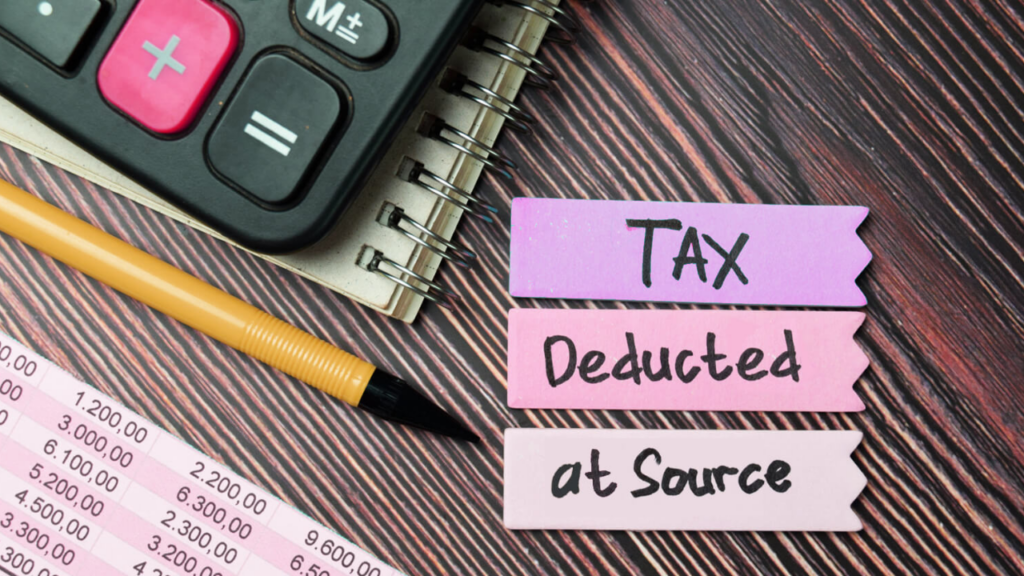
Section 194IA of the Income Tax Act, 1961 mandates buyers to deduct TDS if certain conditions are met. Remember, it’s not an additional tax you pay, but a portion of the seller’s eventual tax liability that you withhold upfront.
- Rates and Applicability: Section 192 to Section 206A of the Act specify TDS rates for different types of payments, such as salaries, interest income, rent, professional fees, etc. The current rate of TDS is 1% of the sale consideration.
- Deductor’s Obligations: These sections define the responsibilities of the person making the payment (deductor) to deduct tax at source and deposit it with the government. Companies are responsible for acting as deductors, withholding TDS at the prescribed rate while making specified payments. Timely deposit of TDS and filing of returns are essential for compliance.
- TDS Certificate: Once you’ve calculated the TDS amount, you need to deposit it with the government through designated challan forms or online banking mechanisms. After successful deposition, you can generate a TDS certificate (Form 16B) online on the Income Tax Department’s portal. This certificate is crucial for the seller to claim credit for the deducted TDS while filing their income tax return.
- Threshold Limits: The Act prescribes threshold limits for various types of payments. TDS is only applicable if the payment exceeds this limit. The total sale consideration is Rs. 50 lakh or more (as of April 2024). There’s no TDS for properties below this threshold.
- TDS Return Filing: The deductors are mandated to file TDS returns electronically with the Income Tax department, reflecting details of TDS deducted and deposited. Individuals receiving income subject to TDS should ensure the deductors have deducted the correct amount of tax. They can claim credit for the TDS deducted while filing their income tax return.
- Consequences of Non-Compliance: Failure to deduct or deposit TDS or file TDS returns can attract penalties and interest charges. The buyer (transferee) is responsible for deducting TDS at the time of payment or crediting the sale consideration to the seller’s account, whichever is earlier.
Unveil the 50-50 payment plan
Central Board of Direct Taxes (CBDT)
The CBDT, a board constituted under the Act, issues circulars and notifications to provide further clarification and specific guidance on TDS implementation. These pronouncements by the CBDT hold legal weight and should be considered alongside the Act.
Treaty Obligations
India has entered into Double Taxation Avoidance Agreements (DTAA) with various countries. These treaties may supersede domestic tax laws, including TDS provisions, for residents covered under the agreement.
Applicability of TDS on Purchase of Immovable Property
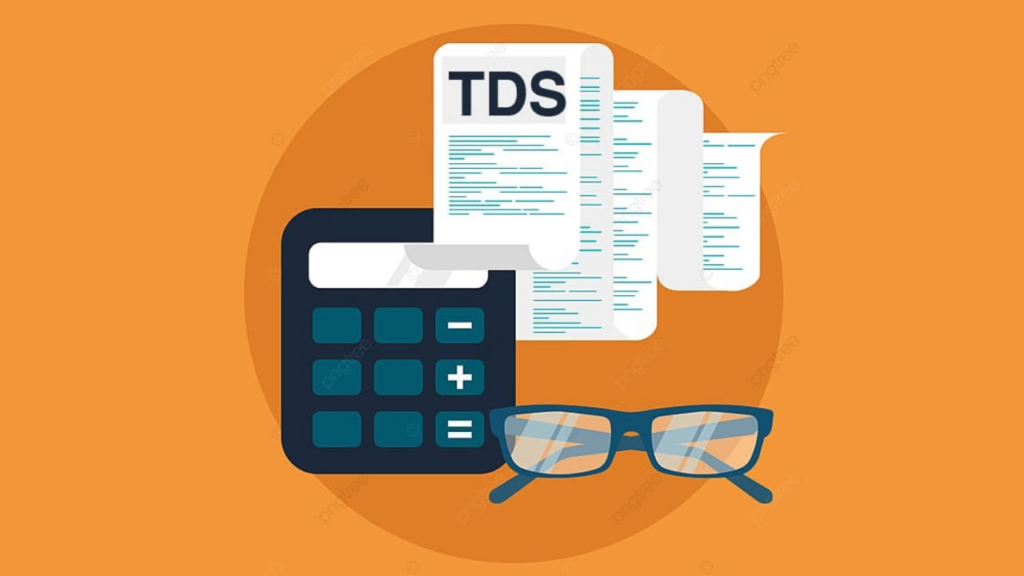
TDS applies only if the property you’re buying is an “immovable property” (land or building). The applicability is irrespective of the property type – residential, commercial, or even land. Section 194IA of the Income Tax Act governs TDS on the sale of immovable property.
Higher TDS for Non-PAN Sellers
If the seller (transferor) fails to provide a valid Permanent Account Number (PAN), the buyer is obligated to deduct TDS at a higher rate of 20% on the entire sale consideration. This discourages tax evasion by sellers.
TDS Deposit and Formalities
The buyer must deposit the deducted TDS with the government within the stipulated timeframe using Form 26QB. They should obtain a challan (payment receipt) for future reference. This form can be downloaded from https://www.incometax.gov.in/iec/foportal/
Calculation of TDS on Property Purchase Price
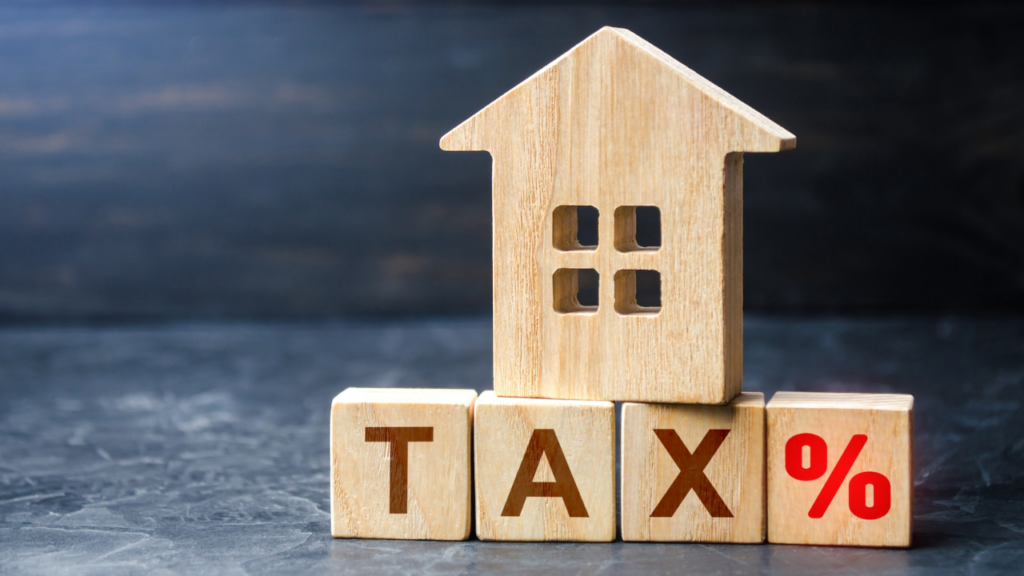
The calculation for TDS is quite straightforward. You simply need to deduct 1% of the total sale consideration you’re paying the seller. Let’s say you’re buying a flat for Rs. 75 lakh. The TDS amount you’ll deduct is Rs. 75,000 (1% of Rs. 75 lakh). A recent amendment (Budget 2022) states that TDS is deducted on the higher of two values: the actual sale consideration you pay or the property’s stamp duty value. This ensures a more accurate tax collection based on the property’s market worth.
It is to be noted that for Non-Resident Indians (NRIs) selling the property, the TDS rate is generally 20% (plus surcharge and cess) on the capital gains (profit earned on sale). However, NRIs can apply for a Lower Deduction Certificate (LDC) under Section 197 to reduce the TDS rate. The TDS is calculated on the sale consideration, which includes the base price of the property and any additional charges levied by the seller, such as club membership fees, car parking charges, etc.
TDS Amount = (Sale Consideration Exceeding ₹50 Lakhs) * TDS Rate
Let’s consider a property with a sale price of ₹75 lakhs and a resident seller. Sale consideration exceeding ₹50 lakhs = ₹75 lakhs – ₹50 lakhs = ₹25 lakhs. Then, TDS for resident seller = ₹25 lakhs * 1% = ₹25,000
Exemptions and Deductions Available for TDS on Property Purchase

Unfortunately, there are no exemptions for TDS on property purchase. However, there’s a silver lining! The seller can adjust the TDS you deducted against their final tax liability while filing their income tax return. This essentially reduces the seller’s tax burden. If the property is being purchased through installments, TDS needs to be deducted on each instalment payment exceeding the threshold limit.
There are several scenarios where TDS is not applicable, even when the total sale consideration or stamp duty value of the property is less than Rs. 50 lakh. The aforementioned TDS rule applies only to immovable property, excluding agricultural land. There’s no TDS requirement when buying a residential house directly from the central or state government, or any authority constituted by them. If the property is being transferred between Non-Resident Indians (NRIs) through inheritance or gift, TDS is not applicable.
It’s also important to distinguish between TDS and deductions. TDS is a tax deducted at source, which you can claim as a credit when filing your income tax return. Deductions, on the other hand, directly reduce your taxable income. You can read more about buying a property in this Real Estate Buyer’s guide.
Conclusion
Understanding TDS on property purchase might seem daunting at first. However, it’s a simple process that ensures transparency in real estate transactions. Remember, a little knowledge goes a long way in ensuring a stress-free property purchase experience!
FAQs
Yes, a buyer is responsible for depositing the deducted TDS with the government within 30 days of the month in which the deduction is made. This can be done online through Form 26QB on the Income Tax Department’s website.
You’ll need your PAN card, the seller’s PAN card, property details, payment details, and TDS challan (payment receipt).
Not deducting TDS can attract a penalty equal to the amount of TDS you were supposed to deduct. It’s best to avoid this by adhering to the regulations.
The TDS rate depends on the nature of your income and your tax residency status.
Yes, TDS applies to under-construction properties as well, following the same principles as mentioned above. TDS needs to be deducted on each payment made towards the property.






